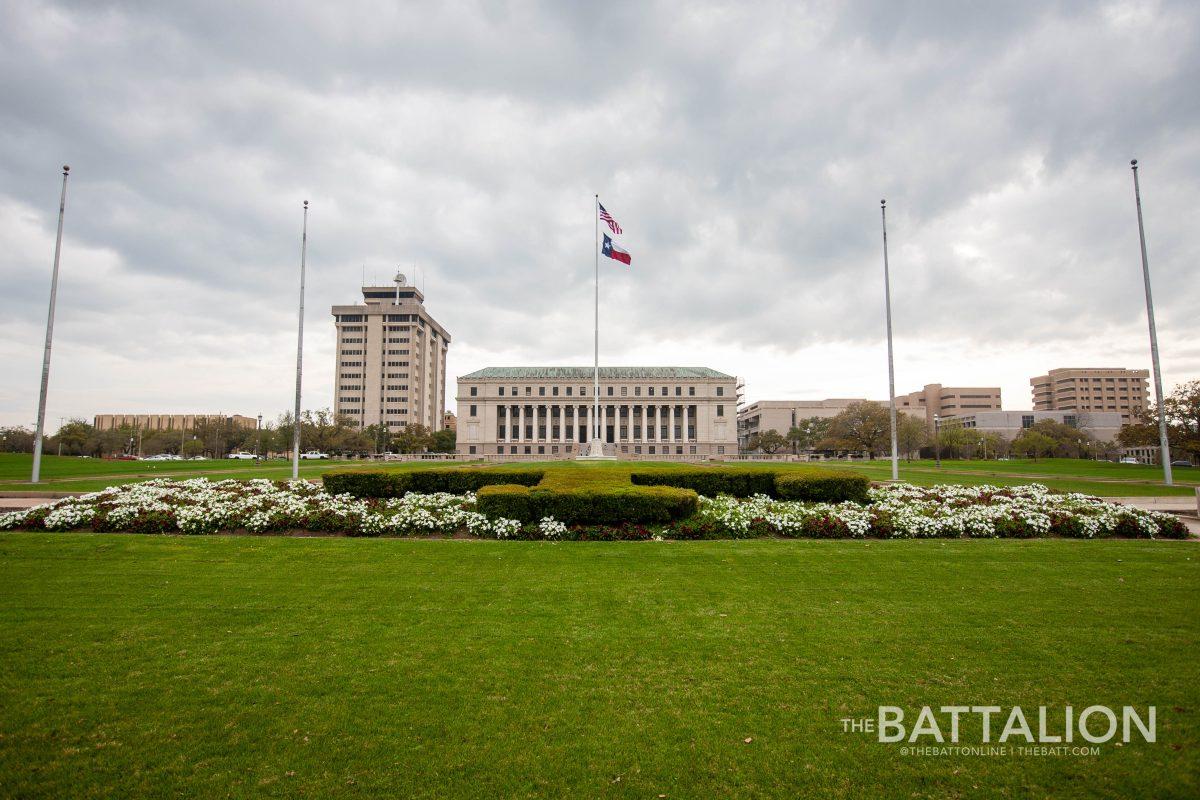The United States Immigration and Customs Enforcement (ICE) announced new guidelines on Monday, July 6 prohibiting international students from taking exclusively online course loads this fall.
This announcement reverses previous online course exemptions temporarily granted to all participants of the Student and Exchange Visitor Program (SEVP) during the spring semester in light of the COVID-19 pandemic. According to A&M International Student Service’s website, international students attending U.S. institutions on F-1 visas may only take three credit hours of online classes each semester during normal times. However, ICE’s COVID-19 guidance released on March 13 allowed F-1 and M-1 visa holders to temporarily count any course that had been moved completely online towards their full-time enrollment status.
“Given the extraordinary nature of the COVID-19 emergency, SEVP will allow F-1 and/or M-1 students to temporarily count online classes towards a full course of study,” ICE’s March 13 statement said. “This temporary provision is only in effect for the duration of the emergency and in accordance with the procedural change documents filed in a timely manner to SEVP.”
The modifications announced July 6 rescind the March 13 guidance and ban international students from remaining in the U.S. if they are taking a full online course load this upcoming fall semester.
“The U.S. Department of State will not issue visas to students enrolled in schools and/or programs that are fully online for the fall semester nor will U.S. Customs and Border Protection permit these students to enter the United States,” ICE’s new statement reads. “Active students currently in the United States enrolled in such programs must depart the country or take other measures, such as transferring to a school with in-person instruction to remain in lawful status or potentially face immigration consequences including, but not limited to, the initiation of removal proceedings.”
According to these new guidelines, students attending schools that are implementing a mixture of online and face-to-face classes — or hybrid courses — are allowed to take more than three credit hours online, but they must certify to SEVP that the fall semester will not be completely online. Therefore, as President Michael K. Young said in his recent email announcement to the university, A&M’s international student population is exempt from facing deportation or barred entry because half of all fall coursework will be conducted face-to-face.
Computer engineering junior Prisha Srivastava, who is an Indian national but has resided in the U.S. for seven years, started a petition on Monday asking A&M leadership to support their international students and encourage SVEP to change these guidelines. Because of the extremely diverse nature of every international student’s situation, Srivastava said she hopes A&M leadership can consider more alternatives to help their international students other than just hybrid courses.
“Nationally, this definitely threatens not just the education, but the mental health and the very existence of international students in this country,” Srivastava said. “International students come into this country and live for the time being. This forces international students to change everything they’ve planned, everything that was going the right way, because of reasons that they couldn’t control.”
Even for schools giving the option for in-person classes, Srivastava said there are so many other factors international students have to consider, such as international travel bans and the health risks for immunocompromised individuals. She said it’s also important for university officials to consider international students whose parents also reside in the U.S.
“Just imagine, where would those kids go?” Srivastava said. “They would be deported back to their home country that doesn’t have their parents.”
Young said in his Tuesday statement that the university supports the Association of American Universities’ (AAU) recent statement in opposition to these new federal guidelines. The AAU said this new policy will have devastating effects on international students and universities alike, to include personal financial losses and negative economic impacts on university communities.
“This ICE policy is immensely misguided and deeply cruel to the tens of thousands of international students who come to the United States every year,” the AAU statement reads. “We strongly urge the administration to rescind this guidance and provide temporary flexibility to permit international students to participate in the range of in-person, online, and hybrid instruction that institutions are implementing in light of the pandemic and their local conditions.”
Harvard University and the Massachusetts Institute of Technology, both of which have decided to shift all courses online this fall, filed a lawsuit against the Trump Administration on Wednesday to block ICE’s new guidelines, according to CNN. The University of Southern California, and Cornell University both announced they will be joining an amicus brief in support of Harvard and MIT’s lawsuit.
Additionally, Columbia University announced Tuesday they will be creating “Pop-up Global Centers” to give international students the ability to register for an in-person course in new locations, thus being exempt from ICE’s new guidelines. A number of other universities across the country have released statements this week decrying the federal guidelines and supporting their international students, according to a Forbes article released Tuesday.
A&M’s International Student Services said in a statement on Twitter that they are working closely with university leadership, and they will be hosting a Zoom Q&A seminar on July 16 at 4 p.m. to address any concerns about SVEP’s announcement. Students can submit questions at https://tamu.qualtrics.com/jfe/form/SV_1ZgjsIjpGmaWJG5.
New federal policy could deport international students for taking online-only courses this fall
July 8, 2020
Photo by Photo by Meredith Seaver
Administration Building
0
Donate to The Battalion
$2065
$5000
Contributed
Our Goal
Your donation will support the student journalists of Texas A&M University - College Station. Your contribution will allow us to purchase equipment and cover our annual website hosting costs, in addition to paying freelance staffers for their work, travel costs for coverage and more!
More to Discover










